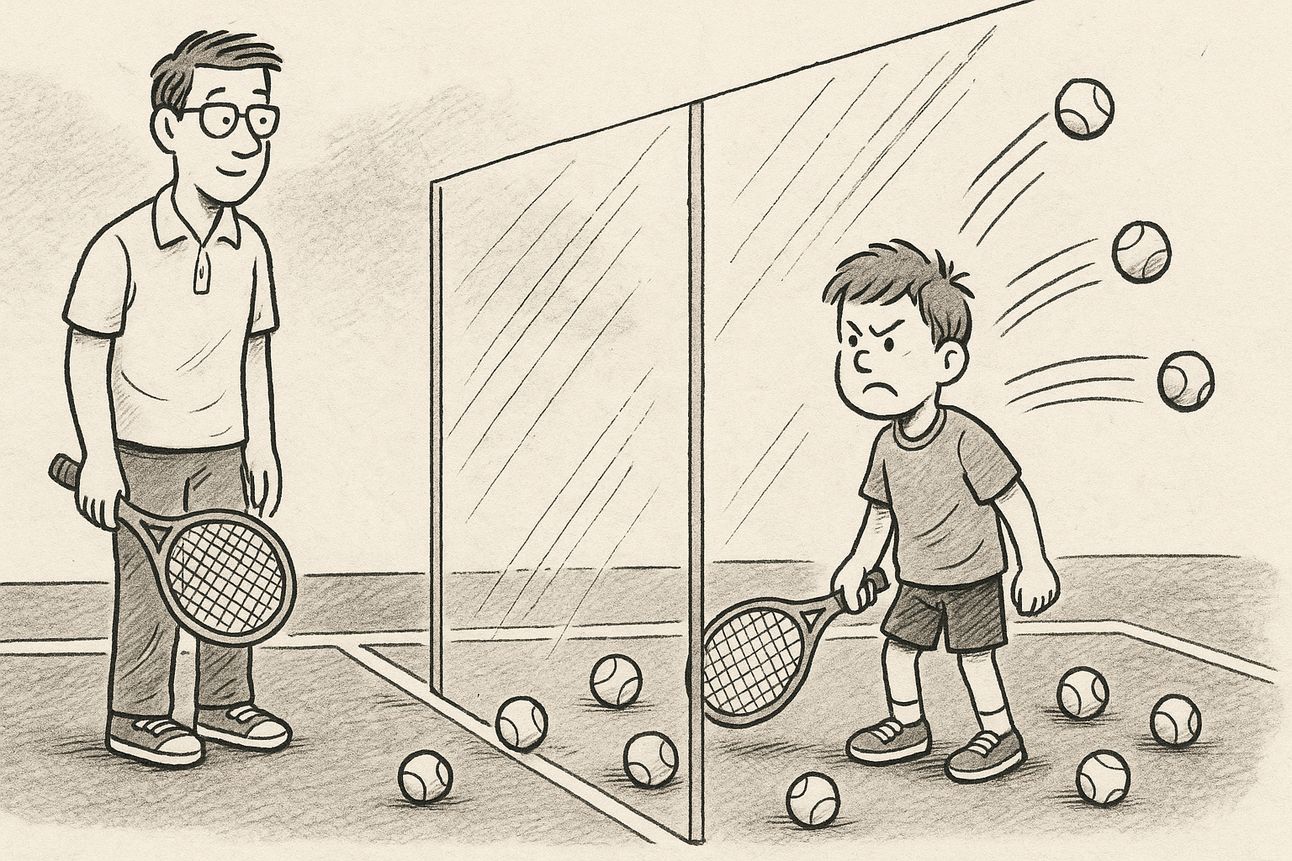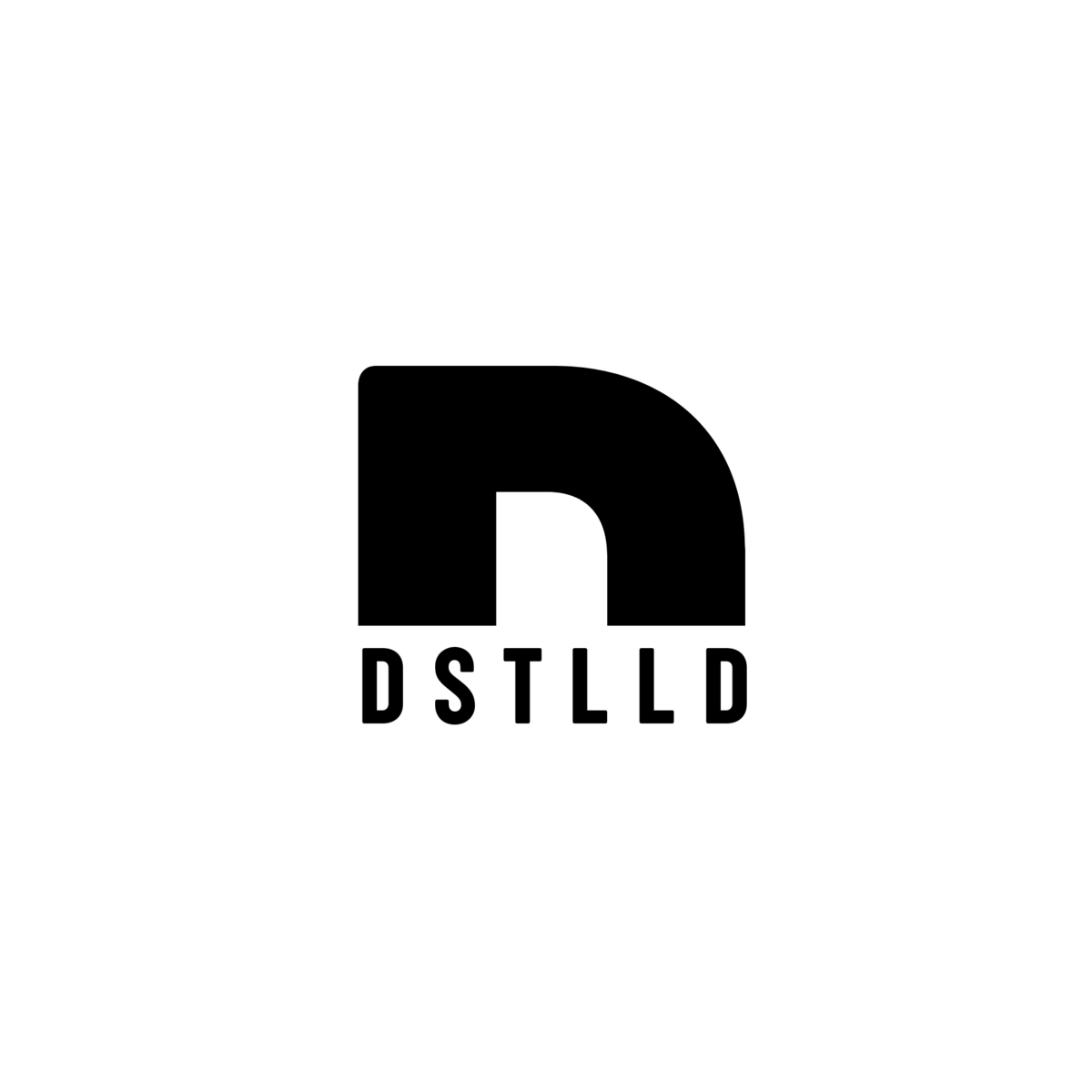I’ve never really known how to think about boundaries.
I knew they were important. Something responsible, emotionally mature adults were supposed to have. But when it came to actually understanding what boundaries were — how they worked, why they mattered and why setting them made me feel like an awful person — I didn’t have a mental model that made it click.
Until I heard this metaphor.
Boundaries are like a tennis court.
You’re on one side. The other person — your partner, your kid, your mom, your boss — is on the other. And in between you isn’t a net, it’s a glass wall. You can see them clearly. You care about them. But whatever happens on their side of the court stays on their side. And whatever happens on your side stays with you.
This isn’t a wall to keep people out — it’s a boundary to keep emotions where they belong.

Let me share a quick story from someone in our life who recently helped illustrate the cost of not having one.
One of my wife’s friends had a baby a few months ago. In the postpartum blur her husband’s parents began showing up at the house almost every day.
At first, she tried to be gracious. New baby. Excited grandparents. All the polite scripts. But as the first couple weeks dragged on, so did her sanity. She finally reached her breaking point, snapped a little and laid down a hard boundary: “You can’t come over every day.”
From what I understand, it turned into a whole kerfuffle.
It got me thinking: Obviously, the best time to set a boundary is before the blow-up — not during it.
But why do we wait? Why do we avoid the gentle “hey, we need space” conversation until it metastasizes into a confrontation?
Here’s one theory: we mistake discomfort for guilt.
Let’s say you say no to your mom: “You can’t come by this weekend. It doesn’t work for us.”
She’s upset.
You feel awful.
And in your head, it gets labeled: “guilt.”
But what if it’s not guilt?
Dr. Becky Kennedy, the source of today’s metaphor, makes the case that real guilt is what we feel when we violate our own values. Like if you scream at someone in traffic and later think, “That’s not who I want to be.” That kind of guilt is useful. It’s a signal.
But when you say no in alignment with your values — protecting your family’s downtime, holding a boundary with your kid, respecting your own energy — and still feel bad?
That’s not guilt.
That’s your body reacting to someone else’s distress.
You’re watching them struggle on their side of the court and instead of letting the ball bounce back to them, you catch it. You hold it. You internalize it. And you call that “guilt”, even though it’s not yours to carry.
It’s their ball. Their emotion. Their reaction. Not your responsibility to fix.
Which brings me to the point of the newsletter: “You’re allowed to say no. And they’re allowed to be upset.”
Both things can be true.
You’re not a bad person for protecting your peace. They’re not a bad person for wishing it was otherwise. It’s just a mismatch of needs.
This is especially helpful in parenting. When your kid wants a toy and you say no, their meltdown isn’t proof you did something wrong. It’s proof they’re small and learning to process disappointment.
Same with your partner — if you say you need some alone time and they get frustrated, that’s a signal of their own inner weather. You can witness it without stepping into the storm.
Not everything that feels bad is bad.
Sometimes it’s just the thud of a tennis ball hitting glass.
Let it bounce back.
H/T - The Tim Ferris Show
Words I Wish I Wrote
“We are what we pretend to be, so we must be careful about what we pretend to be.”
Links & Learnings
Just because no one collapsed doesn't mean it wasn't progress.
Psst… DSTLLD has a podcast now, too. I know — like the world needs another podcast, right? But here’s the thing: if you can tolerate my written rambles, you’ll probably find my in-person yammering… well, moderately tolerable. It’s basically me and a guest chatting about the same offbeat stuff you read here, except now you get to hear me stumble over big words in real time. I’m not saying it’s the greatest thing in the universe (trust me, I’ve listened to it), but if you like DSTLLD, there’s a good chance you won’t hate it. Win-win! Subscribe or follow on your favourite podcast platform:
Did you learn something new? If you enjoyed this, you can support DSTLLD by taking a moment to:
❤️ Like this post to get it in front of more curious people.
💬 Reply or comment to share your thoughts or ask a follow up question.
📤 Forward this post to someone who’d benefit from it.
PHOTW: Now I want a pickup truck just for this.

